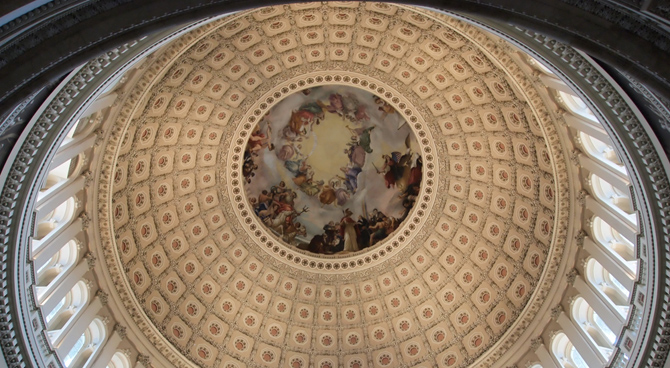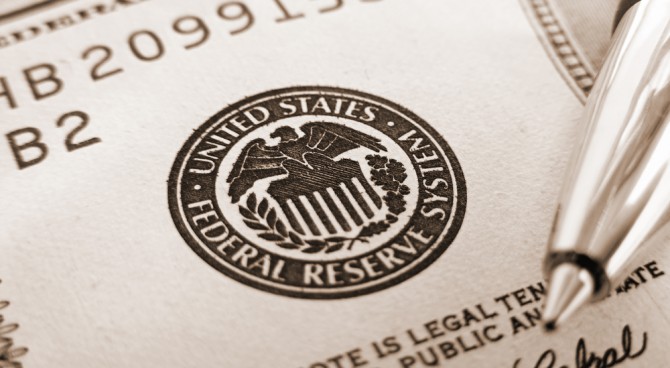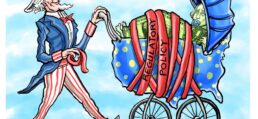Without the deregulation of the ’70s—which he supported—the economy would be smaller today.
By Phil Gramm and Mike Solon
July 14, 2021 2:16 pm ET
In a sweeping executive order aimed at reimposing Progressive Era regulatory policy across the U.S. economy, President Biden recounted the foundational myths of modern progressivism. The first canon of progressivism holds that breaking up the consolidating industries or trusts in the late 19th and early 20th centuries, and regulating those industries heavily until the late 1970s, benefited the economy and gave “the little guy” a fighting chance. Consumers, workers and the economy took a hit, according to the progressive myth, when the regulatory structure was overturned 40 years ago.
Progressive interpretation claims that the industrial concentration of the late 19th and early 20th centuries was evidence of the rise of monopolies, but if the consolidating industries were exhibiting anticompetitive behavior, output would have fallen and prices would have risen. The opposite happened. As economist Thomas DiLorenzo showed in a classic study, output in industries accused of being monopolistic during the debate on the Sherman Act in 1890 increased by 175% from 1880 to 1890—seven times the growth rate of the economy as a whole. The average price of products sold by these same industries fell three times as fast as the Consumer Price Index.
Hard economic data consistently shows that the industrial concentration at the turn of the 19th century was driven by vigorous competition arising from transformative technology and improved industrial organization. Efficient producers mastered the economies of scale to provide consumers with lower prices and improved product quality. Competition and new technology destroyed the pricing power of emerging trusts, and most failed to survive. Even the oil and sugar trusts, which existed because of protective tariffs, faced relentless price competition.
Many trusts welcomed progressive regulation. A comprehensive study by economist George Hilton and historian Gabriel Kolko showed convincingly that railroads championed regulation. They were more than happy to have the feds set freight rates. Market forces had driven down revenues per ton-mile by some 18% between 1870 and 1890. The first major action of the Interstate Commerce Commission was to ban price competition by outlawing price rebating, which the owners of an overbuilt railway system welcomed. When interstate trucking became an effective competitor of the railroads, the ICC muted that competition by regulating the new industry.
The 1970s brought two recessions, double-digit inflation and an end to America’s postwar economic dominance, setting off an intense policy debate. As economists, regulators, politicians, business leaders and policy advocates debated why the U.S. economy seemed to be losing its exceptionalism, a consensus formed around the belief that regulations based on the Progressive Era principles that Mr. Biden now seeks to revive were hurting consumers, workers and the economy.
Experts charged with protecting consumers, like then-Senate Judiciary Committee staffer (and Harvard antitrust law professor) Stephen Breyer and Civil Aeronautics Board Chairman Alfred Kahn, provided the hard evidence that convinced their bosses, Sen. Ted Kennedy and President Jimmy Carter, that America needed to reform agency regulation and end regulation of vast sectors of the economy. Any doubt that the consensus that Progressive Era regulation had failed ended when Ralph Nader testified before Kennedy’s subcommittee, denouncing regulations that kept prices high and choices low, and protected regulated industries.
When airline deregulation passed the Senate in 1978, Kennedy declared: “The success of this legislation is the result of a clear consensus . . . that rigid federal economic regulations of the airlines tends to increase prices, foster inefficiency in operations and perpetuate Government control, bureaucracy and red tape. . . . This consensus has been built brick by brick in recent years by serious and careful nonpartisan examinations of . . . the nature of government and competition in the 1970s.”
The Senate passed airline deregulation 82-4 on Oct. 14, 1978, and Sen. Joe Biden voted for it. But Democratic deregulation was only beginning. As Kennedy noted: “The restrictive price and entry provisions of the Federal Aviation Act . . . were copied directly from the Interstate Commerce Act of the 1880s governing railroads. . . . We need to now look beyond the airlines and the corrective measures we are voting upon today and recognize the fact that . . . heavy regulation, as illustrated by the airline industry, is not the answer.”
On April 1, 1980, the Senate voted on the Staggers Rail Act to deregulate railroads. Again, Mr. Biden voted for it. In signing the Motor Carrier Act of 1980, which Mr. Biden also voted for, President Carter sounded the death knell on Progressive Era regulation: “This historic legislation . . . will remove 45 years of excessive and inflationary Government restrictions and red tape. . . . No longer will trucks travel empty because of rules absurdly limiting the kinds of goods a truck may carry. No longer will trucks be forced to travel hundreds of miles out of their way for no reason or prohibited senselessly from stopping to pick up and deliver goods at points along their routes. The Motor Carrier Act of 1980 will bring the trucking industry into the free enterprise system, where it belongs.”
Far from hurting consumers, as progressive myth alleges, deregulation of the U.S. transportation system unleashed a wave of invention and innovation that reduced logistical transportation cost—the cost of moving goods as a percentage of gross domestic product—by an astonishing 50% over 40 years. Airline fares were cut in half on a per mile basis, while air cargo surged from 5.4% of all shipments to 14.5% by 2012, making air transit for people and packages a routine part of American life. “Our economy would be much smaller and per capita income significantly lower without these far-sighted changes,” according to FedEx CEO Fred Smith.
In this Carter-Kennedy led reform, the duty of government was to protect the consumer from harm, not to protect the producer from competition. Without the productive energy released by deregulating airlines, trucking, railroads, energy and communications, the U.S. might not have found its competitive legs as its postwar dominance in manufacturing ended in the late 1970s. The benefits of deregulation to this day continue to make possible powerful innovations that remake the world. Amazon, FedEx and Facebook are but a tiny fraction of a long list of progeny produced by lifting the heavy hand of Progressive Era regulation. We reimpose that regulation at our own peril.
Mr. Gramm is a former chairman of the Senate Banking Committee and a visiting scholar at American Enterprise Institute. Mr. Solon is a partner of US Policy Metrics.





